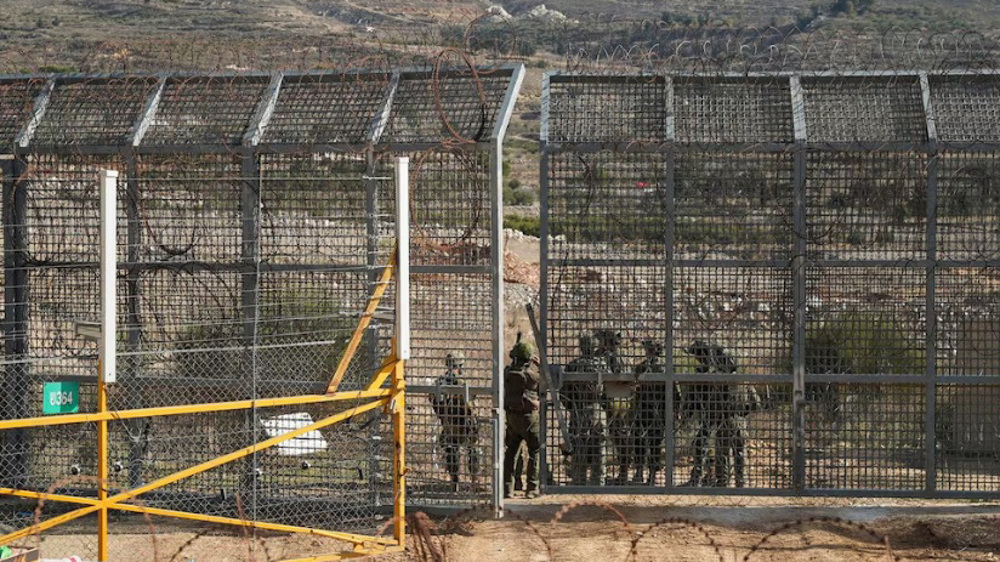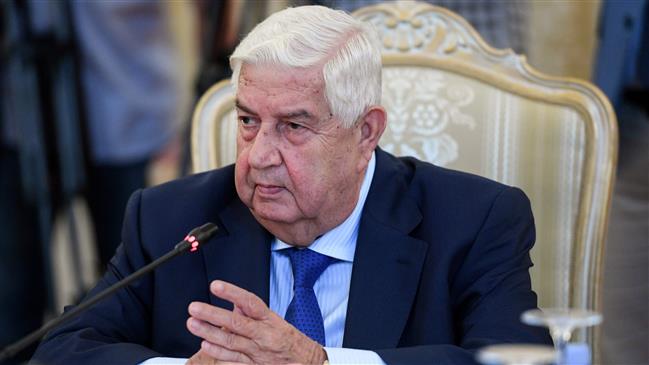Syria calls on UNSC to condemn Aleppo gas attack
Syria’s foreign ministry has called on the UN Security Council to condemn the recent chemical attack carried out by the foreign-backed militants in the northern city of Aleppo.
"The Syrian government calls on the Security Council to immediately and strongly condemn these terrorist crimes ...(and take) deterrent, punitive measures against the nations and regimes that support and fund terrorism," the foreign ministry said in a statement.
“The terrorist attack in Aleppo is the result of the efforts by certain countries which sponsor terrorists groups,” it added.
Foreign-backed militant groups have launched a chemical attack against a neighborhood in Aleppo, injuring scores of people.
The attack hit al-Khalidiya neighborhood in the government-held city on Saturday, foreign news agencies and state television reported, saying close to 50 people have been hospitalized.
Doctors said most of those admitted to hospitals have breathing problems and blurred vision. State TV showed footage of medical professionals treating men and women on hospital beds.
There was a stench of gas in Aleppo city after projectiles were fired, head of the so-called Syrian Observatory for Human Rights Rami Abdurrahman said. Health official Haj Taha said symptoms suggested that the poisonous gas used was chlorine.
According to Aleppo police chief Essam al-Shali, wind caused gas to spread and state TV later said the gas affected two other areas in the city but there were no deaths.
"There are often missiles on the city but this is the first time we smelled such a smell," one patient said without giving his name.
Government troops reportedly retaliated, hitting the source of the attack.
Russia said the chemical attack had been launched from an area in the Idlib de-escalation zone controlled by Nusra Front militants.
In a statement, Russia's Ministry of Defense said it planned to talk to Turkey about the incident since Ankara was a guarantor of how the militants there upheld a ceasefire.
"According to our preliminary information, confirmed in particular by symptoms of poisoning among the victims, the shells used to bombard residential areas of Aleppo were filled with chlorine (gas)" Russian Major-General Igor Konashenkov said.
In the past, the United States and its allies have been using as pretexts to carry out missile strikes against Syria.
The first such attack came in April 2017, when US President Donald Trump ordered US Navy warships in the Mediterranean to fire a total of 59 Tomahawk cruise missiles at a Syrian airbase.
About a year later, Trump along with his French counterpart Emmanuel Macron, and British Prime Minister Theresa May authorized a joint missile attack against alleged chemical weapons manufacturing sites inside Syria.
The latter attack, which came in response to what the US and its allies had insisted was another chemical attack in Douma on the outskirts of Damascus, saw 105 cruise missiles being fired from sea and air at Syrian government targets.
In September, US National Security Adviser John Bolton said his country had been in talks with France and Britain to orchestrate another military strike on Syria that would be “much stronger” than the joint operation staged by the three allies.
Syria finished dismantling its stockpiles of chemical weapons in 2014 under a joint mission led by the United Nations and the Organization for the Prohibition of Chemical Weapons.
Pezeshkian: Iran resolved to complete North-South Transport Corridor
VIDEO | Iran-Syria: For Resistance
Qassam Brigades claims killing 3 Israeli troops in northern Gaza
More alive than ever: Sayyed Hassan Nasrallah's legacy grows stronger in martyrdom
Occupation of Syria’s highest peak Mount Hermon part of ‘Greater Israel’ project
Iran: Syrian people will decide their future without foreign interference
IRGC says Iran’s power exceeds borders, warns enemies to adjust themselves
Dozens detained, several wounded in Israeli raids in West Bank















 This makes it easy to access the Press TV website
This makes it easy to access the Press TV website